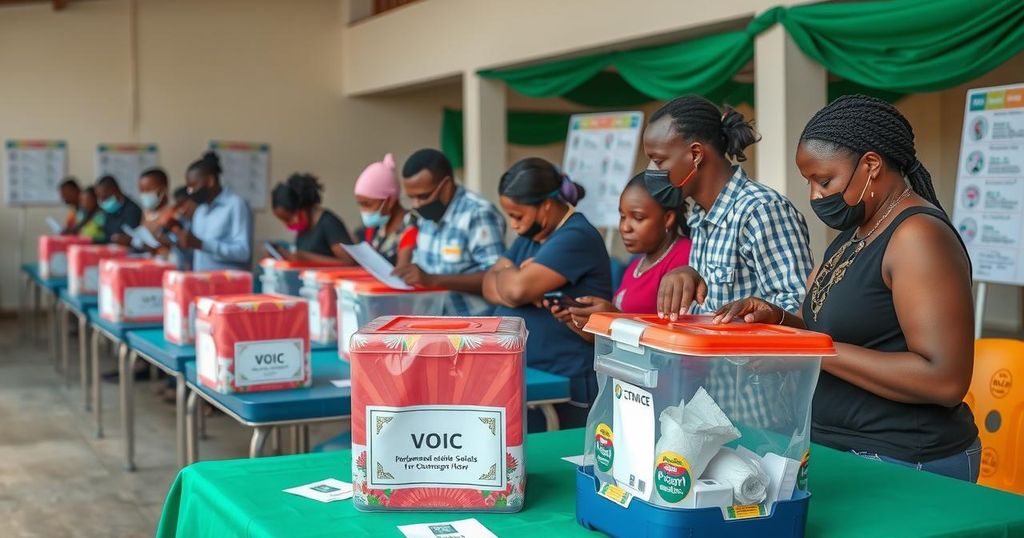Voters in Comoros are electing members of the 33-seat parliament amid allegations of electoral misconduct associated with President Azali Assoumani’s re-election. Approximately 338,000 voters are registered, and nearly 100 candidates are contesting. Opposition factions have mixed responses to the elections, with some calling for boycotts. Results are anticipated by Friday.
Voters in Comoros are participating in parliamentary elections for the Indian Ocean archipelago’s 33-seat parliament, following the re-election of President Azali Assoumani last year, a result the opposition claims was marred by widespread irregularities. Polling stations opened early on Sunday, and approximately 338,000 registered voters are expected to cast their ballots. Nearly 100 candidates have been selected by the Supreme Court to run in this election, the first since January 2020.
President Assoumani has been the ruling authority in Comoros since 1999 after coming to power via a coup, and he has since legitimized his hold through three elections. His opponents have expressed concerns over his authoritarian tendencies and suggest that he is positioning his eldest son, Nour El-Fath, as his successor upon the conclusion of his term in 2029. Furthermore, in 2024, Assoumani assigned his son significant powers, entrusting him with responsibilities for coordinating government affairs.
Some opposition factions, including the Juwa party, led by former President Ahmed Abdallah Sambi, who was sentenced to life imprisonment in 2022, have called for a boycott of the elections; however, other factions have dismissed this appeal. Hamidou Karihila, representing the opposition Hope of the Comoros party, stated, “The Azali regime is weakened … by participating in these elections we are contributing to further exposing the flaws in its system and accelerating its inevitable fall.” The anticipated results are expected to be released by Friday.
The parliamentary elections in Comoros are taking place against a backdrop of political tension and allegations of electoral malpractice. The political climate has been fraught with accusations against President Assoumani of authoritarianism and nepotism, particularly regarding the empowerment of his son to manage governmental functions. Potentially significant in shaping the political landscape, these elections come after the opposition’s previous appeals for electoral boycotts and their advocacy for democratic processes. They also follow the last parliamentary elections, which occurred in January 2020, underscored by the ongoing concerns about the integrity of Assoumani’s previous re-election.
The elections in Comoros represent a critical moment in the nation’s political trajectory, with the opposition eager to highlight perceived flaws in President Assoumani’s regime. The forthcoming election results may be pivotal in shaping future governance and may ignite increased public discourse surrounding democratic practices within the archipelago. As the nation votes amidst claims of electoral misconduct and political maneuvering, the implications for Comoros’ political stability are substantial.
Original Source: www.singletonargus.com.au






